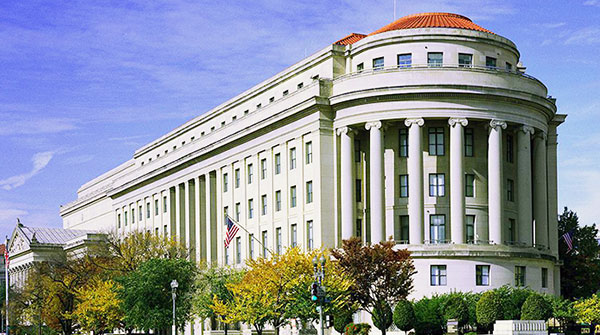Federal Trade Commission Chairwoman Edith Ramirez, along with Commissioners Julie Brill and Maureen Ohlausen, on Wednesday released a statement reaffirming the agency’s decision not to prosecute Google over its search practices, and insisting it was in line with the recommendations of the FTC’s staff.
“Contrary to recent press reports, the Commission’s decision on the search allegations was in accord with the recommendations of the FTC’s Bureau of Competition, Bureau of Economics, and Office of General Counsel,” the commissioners maintained.
Inferences and Suggestions
“Today’s Wall Street Journal article ‘Google Makes Most of Close Ties to White House’ makes a number of misleading inferences and suggestions about the integrity of the FTC’s investigation,” they added. “The article suggests that a series of disparate and unrelated meetings involving FTC officials and executive branch officials or Google representatives somehow affected the Commission’s decision to close the search investigation in early 2013. Not a single fact is offered to substantiate this misleading narrative.”
The FTC conducted an exhaustive investigation of Google’s Internet search practices throughout 2011 and 2012. Based on its review of records, along with internal analyses, the five commissioners — three Democrats and two Republicans — found there was no legal basis for action with respect to the main focus of the investigation.
The commission further concluded that Google’s search practices were not demonstrably anticompetitive.
However, based on an internal document that was leaked to The Wall Street Journal last week, it appears that some FDA staffers had called for filing a lawsuit against Google.
Unfair Practices
Following the release of the document, many competitors and critics of Google have suggested that its revelations are just the tip of an iceberg concerning the company’s alleged monopolistic practices and the powerful influence it has in Washington.
However, the FTC has said that the leaked document — released mistakenly to the Journal as part of a recent records request — only represented a fraction of the record and the extensive internal analyses that were performed during the two-year investigation.
“Because we don’t have the full FTC file, we can’t see all the competing reports and recommendations,” said Greg Sterling, vice president of strategy and insights at the Local Search Association.
“However, the report released this week and the WSJ article on regular White House meetings suggest some sort of politics behind the scenes,” he told the E-Commerce Times.
Smoking Gun?
Many companies have influence in Washington, D.C., and meetings at the White House don’t necessarily mean that political favors were called in, however.
“There were many competing considerations contributing to the FTC’s decision,” remarked Sterling.
“It’s not as simple as the WSJ articles suggest,” he said, “but from an outsider’s point of view, there is a perception of impropriety that will probably have to be further addressed by the FTC.”
At the time the investigation was concluded, Google offered its commitment to modify some of its business practices.
In the two years since then, Google has abided by those commitments, the FTC has said.
Not So Soft
It might not be an accurate assessment that the FTC went easy on Google or gave it a pass, but perhaps it didn’t give the company as hard a time as other regulatory bodies have — notably those in Europe, which forced it to change business practices and pay hefty fines.
Google isn’t the only company the FTC has been accused of going soft on in recent years.
“The FTC hasn’t had teeth for quite some time,” said Jim McGregor, Tirias Research founder and principal analyst.
“This is clear — at least compared to what companies like Google have faced in Europe and Asia,” he told the E-Commerce Times.
“The FTC may have given them the minimal punishment, but it isn’t them going soft, but rather trying to work out solutions,” he added.
“Whether it is the FTC or an agency in the EU, once you have one of these agencies looking at you — you really have to work with them or you will face big fines and sanctions,” McGregor explained.
Although the FTC hasn’t taken as strong a stance as some would like in certain cases, its record doesn’t suggest a pattern of weakness, he pointed out. “They’re not going soft when you look at actions over the past decade. Some will say they should have taken a harder stance, but what is done is done.”





















































Social Media
See all Social Media